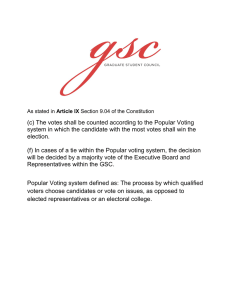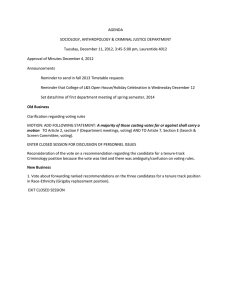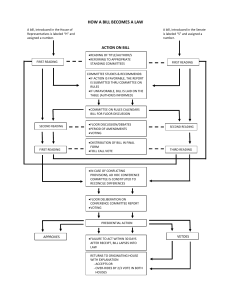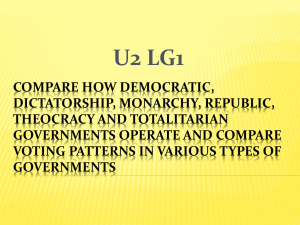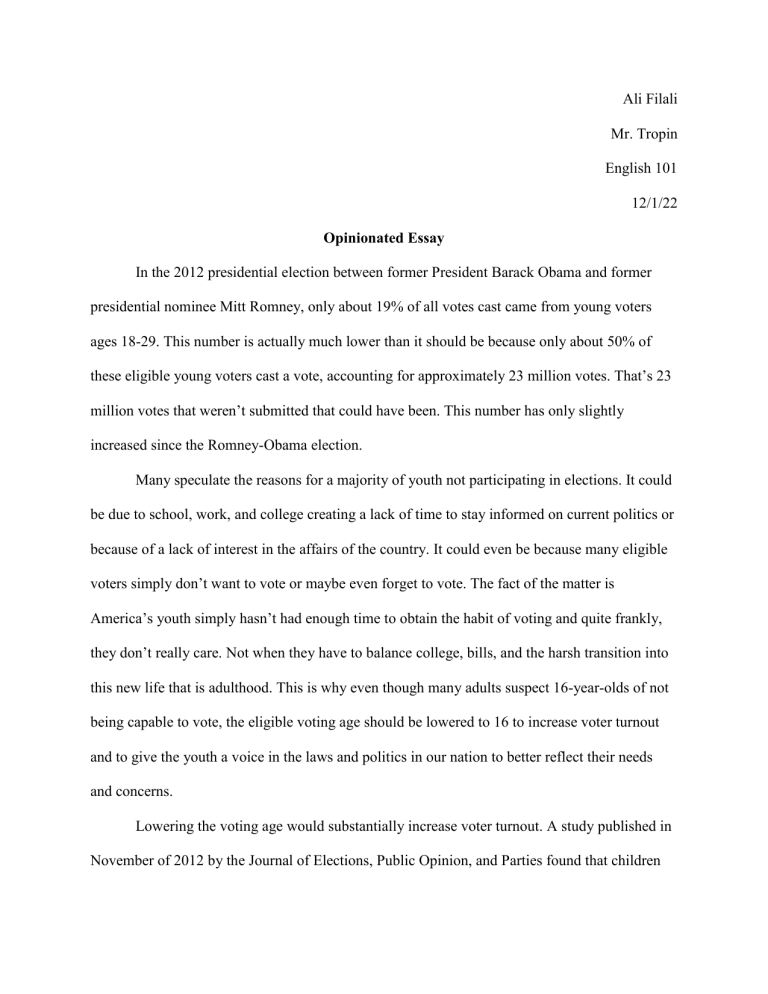
Ali Filali Mr. Tropin English 101 12/1/22 Opinionated Essay In the 2012 presidential election between former President Barack Obama and former presidential nominee Mitt Romney, only about 19% of all votes cast came from young voters ages 18-29. This number is actually much lower than it should be because only about 50% of these eligible young voters cast a vote, accounting for approximately 23 million votes. That’s 23 million votes that weren’t submitted that could have been. This number has only slightly increased since the Romney-Obama election. Many speculate the reasons for a majority of youth not participating in elections. It could be due to school, work, and college creating a lack of time to stay informed on current politics or because of a lack of interest in the affairs of the country. It could even be because many eligible voters simply don’t want to vote or maybe even forget to vote. The fact of the matter is America’s youth simply hasn’t had enough time to obtain the habit of voting and quite frankly, they don’t really care. Not when they have to balance college, bills, and the harsh transition into this new life that is adulthood. This is why even though many adults suspect 16-year-olds of not being capable to vote, the eligible voting age should be lowered to 16 to increase voter turnout and to give the youth a voice in the laws and politics in our nation to better reflect their needs and concerns. Lowering the voting age would substantially increase voter turnout. A study published in November of 2012 by the Journal of Elections, Public Opinion, and Parties found that children are likely to be influenced by whatever voting habits their parents have while they live together. When it’s time for the children to leave the house, these feelings may lessen. Altogether, they found that “If the transmission of this habit is lessened when leaving home and the influence of peers, who have not yet acquired the habit, is increased, turnout may be affected negatively.” In short, a bundle of things can influence and affect a young voter’s habit of voting. This is greatly worrying, as these things spread exponentially. The means if one student sees that none of his peers are voting, they may feel justified in also not voting. When these occurrences of not voting are happening consistently, it’s hard to come back from, which is how habits tend to work. Children can form habits in a more timely manner than adults and so it’d be extremely beneficial if we took advantage of this and subjected them to forming the habit of voting. And so, there is a solution to the decreasing voting habit problem. Vote16 is an organization dedicated to progressing towards lowering the voting age. Among other reasons to lower the voting age, they claim, “Research shows that voting is habitual. A person who votes in the first election they are eligible for is likely to continue voting consistently, while someone who doesn’t will take several years to pick up the habit. It is clear that age 16 is a better time to establish a new habit than age 18, and data from places that have lowered the voting age shows that 16-year-olds do indeed vote at higher rates than older first-time voters.” Essentially, they’re saying that lowering it would incite a more prominent voting habit in America’s youth. It has been proven for decades that the younger a child is, the easier it is for them to form any sort of habit. Even in the teenage years at 16 and 18, it’s easier to get used to something than at 22 and older. But, when 18-yearolds are forced to make time in their busy lives to go out and vote consistently, only a small percentage will make the effort. At 16, however, students have an abundance of time. A large majority will have no problem going out to register and cast their ballot. This will follow them through the rest of their lives because they were able to establish the habit of voting much earlier. It’s imperative that the age is lowered to increase voter turnout in order to better represent this country's values and needs. If the voting age was lowered to 16, a massive microphone would be held to the youth of our country, allowing them to significantly contribute to our country's politics. Tyler Okeke, a 19-year old voting rights activist, explains his reasoning for why lowering the voting age would be beneficial to all. “Armed with that information, youth are ‘getting frustrated’ with their lack of political power, Okeke said, after ‘exhausting’ the tools they do have, such as social media campaigning and protesting.” It’s no surprise that teenagers have immense access to technology and information like never before. If they wanted to, they could look up every fact about every war to ever happen in a matter of hours. The way news is presented today, it isn’t hard for people, regardless of age, let alone those born in the digital age, to stay informed on current politics. As a matter of fact, despite a lack of direct political power in voting, minors are still choosing to stay informed. A lot of the time, even more than those who are eligible to vote. To build on that, many 16 and 17-year-olds already have a stake in the game. That is, they are already just as much affected by the decisions of local and federal political issues and decisions as legal adults. Vote16 explains how many adult-affiliated activities are actually being performed by 16 and 17-year-olds as well. “They also work without limits on hours and pay taxes on their income, can drive in most states, and in some cases, are tried in adult courts.” It’s true that many 16 and 17-year-olds aren’t directly affected by political decisions and that many don’t feel the need to change them. However, this feeling of being ineffectual or having little impact most likely stems from the fact that they truly don’t have a say. If they were given a voice through the most reliable way of influence on the government, which is voting, the majority would take advantage. A big reason why adults aren’t in favor of lowering the voting age is that they don’t think those under 18 are mature enough to vote. This argument is valid, considering many teenagers are still in school and still learning and discovering themselves and what life has to offer. Representative Mark E. Green, Republican of Tennessee, says, “We don’t allow a 16-year-old to buy a beer, and the decision-making is because of their ability to reason at that age...And now the other side wants to grant a 16-year-old the ability to decide the future of the country. I think this is foolish”. Yes, American law forbids those under 21-year-olds to purchase and consume any sort of alcoholic beverage, and for good reason. Any sort of consistent alcohol intake by someone underage could potentially undergo serious brain and liver damage. It makes sense that we do not want them drinking a beer because it could cause literal physical harm. However, what people like Representative Green fail to realize is that the second part of their statement is absolutely false. 16-year olds, just like people at age 18,19, 25, 36, etc. should all receive a say in the future of this country because they are a part of the future of this country all the same. Additionally, how does Representative Green’s claim even relate to voting? It’s not like 18-yearolds can possess or purchase alcohol either. Another valid argument against lowering the voting age to 16 is that it simply isn’t a realistic goal in a short time frame. Mr. DuPull, an activist from the 1960s, speaks about this present-day issue. “At 18, people are out of high school, they’re working, they’re drafted, they’re full participants in our society, and if you’re a full participant, then you should be allowed to vote,” (Maggie) Yes, that’s true. 18-year-olds are indeed full participants in our society and thus 100% deserve their right to vote. But many are forgetting that 16-year-olds are also very prominent figures in society. Perhaps not at the nationwide level, with restrictions still in place by their parents and school, but certainly at the state and local level. 16year-olds are officially able to drive, work, and are taxed at the same level in policy that an adult is when they work. Thus, it’d only be fair to allow them to vote at least in local elections. This way, they have a say in what goes on in their lives and their communities as they are often big parts of it. After a thorough review of the evidence, it’s clear that lowering the voting age would have a significant impact on voter turnout and would allow for a better-represented state and local government if given the opportunity to vote at 16, despite the false narratives of being too immature to do such a thing at this age. It’s crucial that we give much of the youth a direct voice in government and politics. Already, so many are exercising the rights they do have such as protesting and petitioning to their fullest extent, yet, unfortunately, they aren’t feeling any real sort of change happening because they know that their values and demands aren’t the same as the majority who cast actual ballots when the issue is brought up to be voted on. That’s what’s so sad about the whole thing. The lack of political involvement so many 16 and 17-year-olds have. If ever given the chance, it’s imperative that 16 and 17-year-olds take advantage of an opportunity to vote in some sort of local election. Lawmakers in certain states are considering passing legislation to give 16 and 17-year-olds a voice. Support must be shown to pass this through so that we can have a society and country that better reflects the needs, wants, and values of our youth because the youth is inevitably this country’s future. We must work and come together for the best future we can have. Works Cited "4 Reasons for Lowering the US Voting Age to 16." Vote16 USA. 03 Mar. 2020. Web. 11 Mar. 2021. Astor, Maggie. "16-Year-Olds Want a Vote. Fifty Years Ago, so DID 18-YEAR-OLDS." 19 May 2019. Web. 11 Mar. 2021. Bhatti, Yosef, and Kasper M. Hansen. "Leaving the Nest and the Social Act of Voting: Turnout among First-Time Voters." Journal of Elections, Public Opinion, and Parties (November 2012) Bowman, Emma, and Jonaki Mehta. "Young Activist Pushes To Lower Voting Age To 16 As 'The Logical Next Step' For Gen Z." NPR, 28 Sept. 2020. Web. 11 Mar. 2021 FairVote.org. "Lower the Voting Age for Local Elections." FairVote. Web. 11 Mar. 2021.
